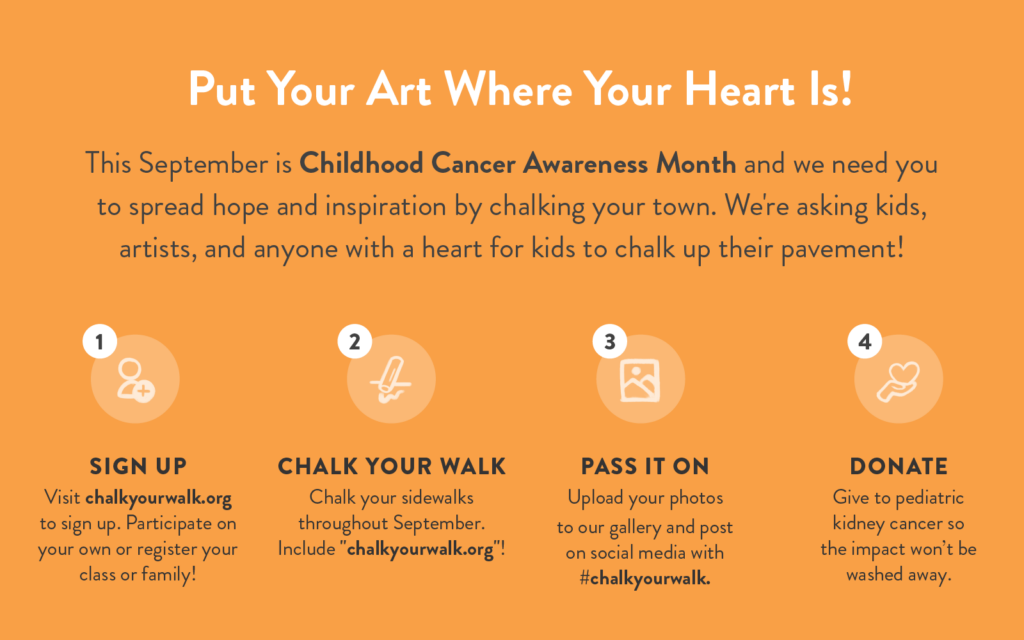Childhood Cancer
The most common types of childhood cancers include kidney cancers, leukemias, brain tumors, lymphomas, neuroblastomas, and sarcomas.



Kidney cancer can impact children and adolescents, resulting in not only reduced life expectancy but also painful and distressing long- and short-term effects on their physical and emotional well-being. The Kidney Cancer Association wants to change that. This Childhood Cancer Awareness Month, the KCA is committed to creating awareness and raising funds for research to find a cure. Donate and invest in research!

See and share your inspirational chalk art!

These are some of the kidney cancer types most often found in children and be discovered as young as infancy. Learn more about these kidney cancer types through our Affiliate Partners:
Translocation RCC is subtype of kidney cancer characterized by genetic changes involving translocations of genetic material between chromosomes. This can affect young children and currently has no standard treatment protocol. Learn more at Joey’s Wings Foundation, named in memory of Joey Xu who died of translocation RCC at age 10.
Wilms tumor, also known as nephroblastoma, is a type of kidney cancer that primarily affects children. It is one of the most common types of kidney tumors found in children and is usually diagnosed before the age of 5. Learn more at the Wilms Cancer Foundation.
Hereditary leiomyomatosis and renal cell cancer (HLRCC) is a genetic condition that affects multiple organs, including the skin, uterus, and kidneys. HLRCC is caused by mutations in the FH gene and is often first recognized when individuals develop cutaneous leiomyomas (benign skin tumors) or when they present with symptoms related to uterine fibroids or kidney tumors. This can become present in young children and adolescents, which can then lead to an aggressive form of kidney cancer. Learn more at the HLRCC Foundation.
Renal Medullary Carcinoma (RMC) is an extremely aggressive form of kidney cancer that primarily affects adolescents and young adults, with some individuals being as young as 8 years old. RMC predominantly affects individuals with sickle hemoglobinopathies such as sickle cell trait and disproportionately affects African American males mroe than females. RMC is characterized by its rapid growth, high propensity for metastasis (spreading to other parts of the body), and resistance to traditional cancer treatments. Learn more at the Chris “CJ” Johnson Foundation.





